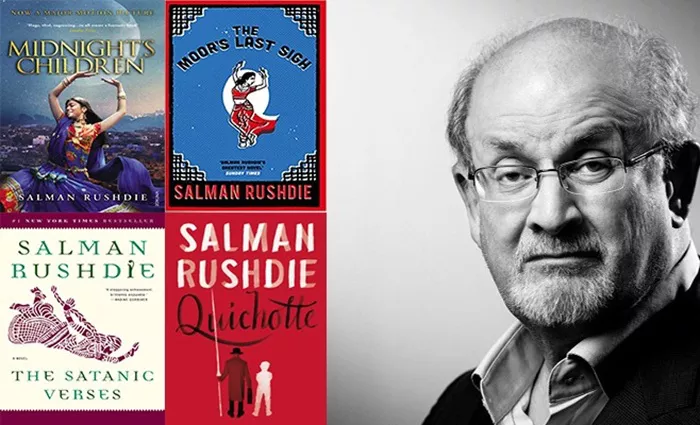On the occasion of Salman Rushdie’s birthday, it is fitting to revisit the profound impact of his literary works, which continue to resonate deeply in today’s complex world. Born on June 19, 1947, Rushdie has spent over four decades shaping narratives that weave history, politics, religion, mythology, and fantasy into compelling stories that challenge and inspire readers worldwide.
Rushdie’s novels transcend mere storytelling; they serve as insightful reflections on pressing issues such as identity, censorship, migration, religious conflict, and the power of narrative — themes that have only grown more urgent in the current global climate.
Redefining History and Narrative
When Midnight’s Children was published in 1981, it marked a revolutionary moment in literature, redefining how Indian history could be portrayed. Awarded the Booker Prize, the novel launched Rushdie’s international acclaim through its innovative narrative style. Rather than offering a straightforward historical account of post-independence India, Rushdie employed magical realism and the fragmented perspective of protagonist Saleem Sinai to question who controls the story of a nation.
In an era when political narratives are frequently contested and rewritten, Midnight’s Children remains a powerful reminder of the fragility of truth and collective memory. Rushdie’s blend of myth and unreliable narration echoes today’s struggles over facts, timelines, and historical interpretations.
A Symbol of Free Expression
The release of The Satanic Verses in 1988 profoundly altered Rushdie’s life and legacy. The novel sparked intense controversy, culminating in a 1989 fatwa that forced Rushdie into hiding and thrust him into the global spotlight as a symbol of free speech and artistic freedom. This episode underscored the complex and often perilous relationship between art, religion, and political authority.
More than three decades later, issues of censorship remain critically relevant. Books continue to be banned, authors face harassment, and artistic expression is frequently challenged. Rushdie’s ordeal highlights the ongoing global debate surrounding freedom of expression.
Novels Reflecting Today’s Realities
Rushdie’s later works, including Shalimar the Clown, The Golden House, and Quichotte, explore contemporary themes such as political violence, nationalism, terrorism, and the personal toll of public upheavals. Though fictional, these narratives often parallel current headlines and cultural anxieties.
Quichotte, a modern retelling of Don Quixote, satirizes the pervasive influence of media and fantasy in an America grappling with division and disillusionment. Through his storytelling, Rushdie examines how cultural consumption shapes identity and perception.
The Art of Storytelling
What distinguishes Rushdie is not only the subjects he tackles but his distinctive literary style. His prose is marked by lyrical complexity, rich metaphors, and layered meanings that invite readers to engage deeply with ambiguity and contradiction. In a world dominated by soundbites and fleeting trends, Rushdie’s writing asserts the enduring value of literature as a medium to expand imagination and confront discomfort.
Resilience Amid Adversity
In 2022, Rushdie survived a brutal stabbing attack during a public appearance, a stark reminder of the dangers faced by those who challenge orthodoxies through art. Undeterred, he published Knife: Meditations After an Attempted Murder in 2024, a memoir reflecting on trauma, survival, and the essential role of literature in public discourse.
The book offers an unflinching look at violence and resilience, reaffirming Rushdie’s commitment to fearless storytelling.
An Enduring Legacy
Salman Rushdie’s works continue to resonate across generations, speaking to exiles, seekers of identity, and advocates for the transformative power of language. His novels do not offer easy answers but persistently challenge silence, question authority, and explore the complexities of truth.
On his birthday, the literary world not only honors a celebrated author but also acknowledges a vital voice that remains crucial in today’s debates over freedom, identity, and storytelling.
Salman Rushdie’s relevance is not rooted in nostalgia—it is a necessity for understanding the world we inhabit.

